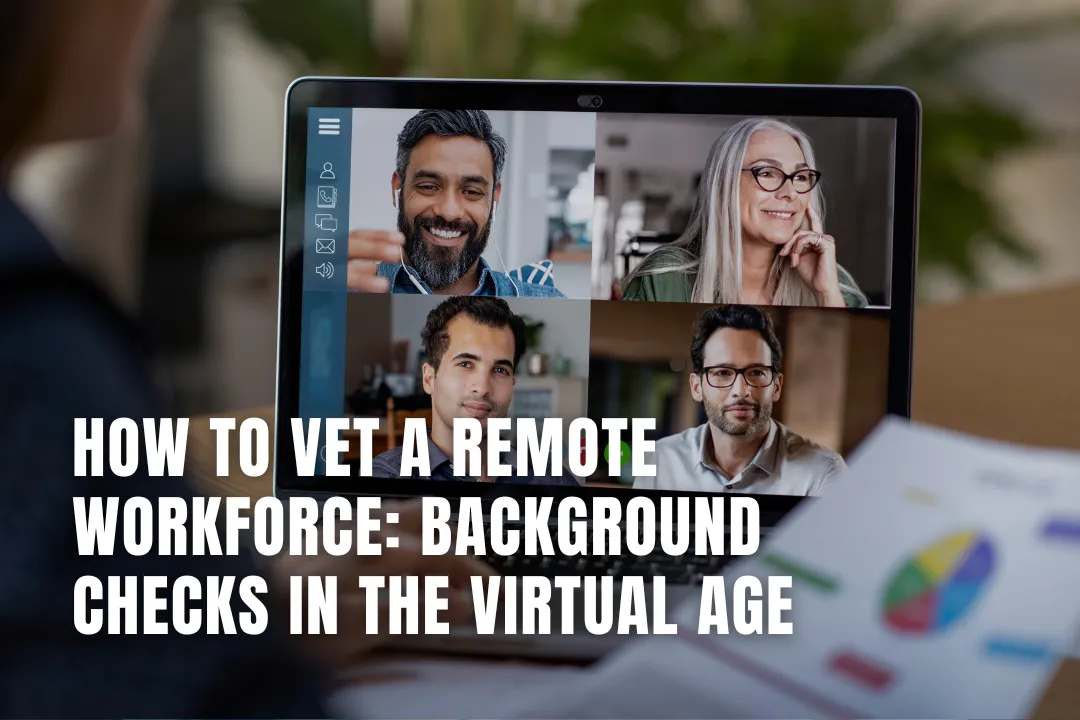
With remote work widely prevalent, online entrepreneurs, business owners, and professionals face new challenges in hiring. Without in-person interactions, verifying a candidate's identity, qualifications, and trustworthiness is more complex. Implementing thorough background checks is essential to building a secure and reliable remote team.
Remote hiring introduces specific obstacles:
These challenges necessitate a more robust and adaptable approach to background checks in the virtual hiring landscape.
Partnering with a reputable screening provider is critical. Providers with experience in remote hiring can offer comprehensive services, including international background checks, while ensuring compliance with data privacy laws. Digital identity verification tools have become invaluable, allowing employers to confirm government-issued IDs and conduct biometric checks. Establishing a standardized screening process for each role ensures fairness and transparency.
Employers should also ethically review candidates' online presence to assess professionalism, while maintaining respect for privacy. Open communication is key: Candidates should be clearly informed about what the background check entails and how their data will be used.
When working with international candidates, additional care is needed to verify educational credentials and employment history through recognized agencies or local verifiers. If discrepancies emerge such as mismatched job titles or unverified institutions engage candidates directly for clarification before drawing conclusions. Creating a protocol for handling such inconsistencies ensures both fairness and thoroughness.
These technologies make remote hiring not only feasible but more secure, reducing the likelihood of hiring mistakes and improving organizational trust.
When conducting background checks, it’s essential to follow legal standards and ethical guidelines. Employers must ensure compliance with laws such as the Fair Credit Reporting Act (FCRA), which includes obtaining proper consent and providing appropriate disclosures. Respecting data privacy is also critical; candidate information should be handled with care and stored securely.
Applying background check policies consistently across all candidates helps to prevent discriminatory practices. Adhering to these principles enables companies to conduct thorough, respectful, and legally compliant hiring practices.
For companies hiring internationally, understanding global privacy frameworks like the GDPR is just as important. Different regions have varying requirements around consent, data retention, and candidate notification. Working with legal counsel or compliance experts can help businesses avoid costly missteps. Documenting a written background check policy that is consistently applied, regardless of role or location, further demonstrates integrity and protects against legal liability.
Given the complexities of remote hiring, partnering with due diligence firms can be beneficial. These firms specialize in conducting comprehensive background checks, verifying credentials, and assessing risks, providing businesses with confidence in their hiring decisions.
In the virtual age, thorough background checks are indispensable for building a trustworthy remote workforce. By understanding the unique challenges, implementing best practices, leveraging technology, and considering partnerships with due diligence firms, businesses can mitigate risks and ensure successful remote hiring.
Author bio: Dakota Deter is the Vice President of Go To Market at Alias Intelligence, which provides timely and accurate background investigations via its highly efficient, client-driven investigations and intelligence platform. Deter leads strategic initiatives to expand the firm’s presence in key sectors of the due diligence industry. With a background spanning institutional sales, residential construction, and military leadership, Deter brings a unique blend of strategic insight and operational experience. An MBA from Michigan State University and a bachelor’s degree in Finance and International Studies from Indiana University support this expertise.